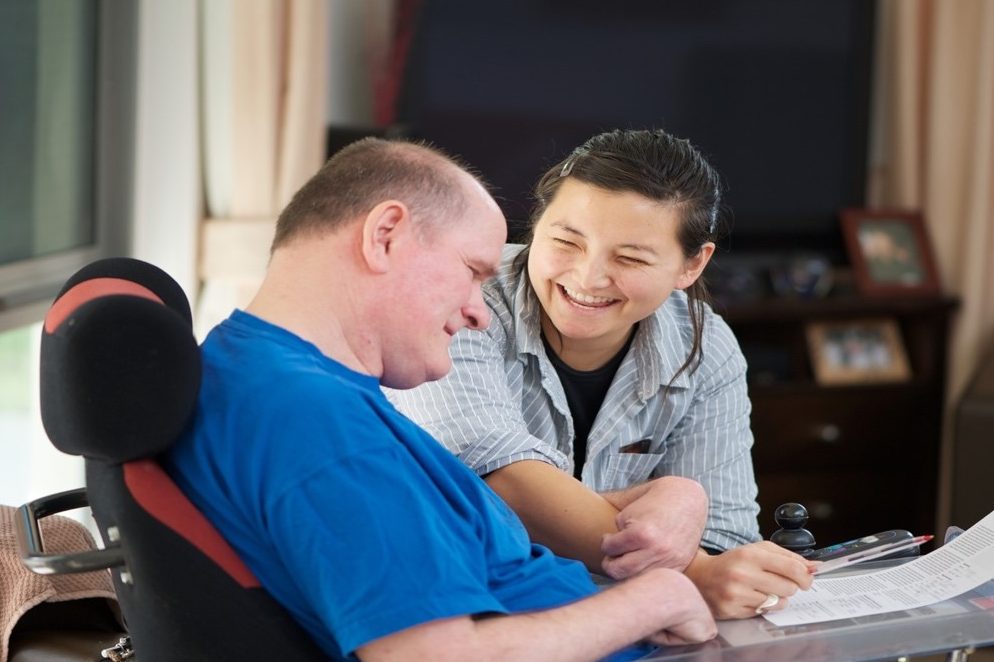This study is about coronavirus (also called Covid-19) and people with learning disabilities following the coronavirus pandemic.
Researchers including Dr Jill Bradshaw and Dr Nick Gore from Kent’s Tizard Centre did this study to hear from people with learning disabilities.
This report is about what they have found so far. Please click the button on the research topics you would like to know more about below.
COVID-19 vaccinations and testing (Easier to Read Briefing)
COVID-19 restrictions (Easier to Read Briefing)
Physical and mental health (Easier to Read Briefing)
Social lives and digital inclusion (Easier to Read Briefing)
Support and services (Easier to Read Briefing)
Bereavement (Easier to Read Briefing)
This has been written in Easy Read style. Easy Read is a way of making information more accessible to people with learning disabilities.
Dr Jill Bradshaw has been leading on gaining information from family carers and paid support staff of people with profound and multiple learning disabilities and Dr Nick Gore is part of the wider research team. The study has just completed the final wave of data collection.
Dr Bradshaw said: ‘Although for many people, life has been returning to normal, less than a third of people with learning disabilities were going back to all the places that they used to go to before the pandemic. One third of people were still paying for services that they were not getting. Nearly half of people with more severe and profound learning disabilities were getting less support than they were getting before the pandemic. One in five people with profound and multiple learning disabilities were still shielding.’
More information about this study can be found on the University of Warwick’s Centre for Educational Development, Appraisal and Research (CEDAR) ‘Coronavirus and people with learning disabilities’ webpage.

